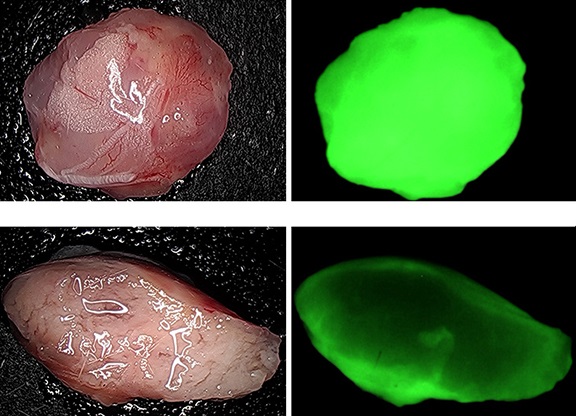
SOUTH KINGSTOWN – Researchers from the University of Rhode Island and Yale University have demonstrated a new approach to fight cancer by using a molecular delivery system that targets acidity to deliver immunotherapy drugs.
The results, published in Frontiers of Oncology, show that a single dose of the immunotherapy drug was able to eradicate even large, advanced tumors in mice.
Immunotherapy is an emerging approach to fighting cancer, but immunotherapy drugs don’t always work. STING agonists are immunotherapy agents developed to turn cold tumors into hot ones, which makes them more susceptible to an immune response. But administering STING agonists to patients can be hard, which is why researchers looked for a way to specifically target the tumor cells, making it more effective.
In this new technique, STING agonists are attached to an acid-seeking molecule called pHLIP, or pH-low insertion peptide, which targets the high acidity of cancerous tumors, delivering immunotherapy directly to tumor cells. Once delivered, the STING agonists engage the body’s innate immune response to fight the tumor.
“STING agonists are an important class of immuno-modulators, but research has clearly shown that they often don’t work on their own and need to be targeted in some way,” said Yana Reshetnyak, a physics professor at URI and a senior author of the new research. “What we show here is that using pHLIP to target tumors through their acidity, we can successfully go after a variety of different cell types within the tumor microenvironment and achieve synergistic and quite dramatic therapeutic effects.”
Researchers gave 20 mice with small colorectal tumors a single injection of the pHLIP-STING agonist and within days the tumors disappeared entirely in 18 mice. The team also treated 10 mice with larger tumors with a single injection and the tumors were eradicated in seven of those mice. By comparison, 10 mice received injections of untargeted STING agonist and while the drug slowed their growth, the tumors remained in all mice. Researchers also noticed that the treated mice developed lasting immunity to cancer long after the initial tumors were gone.
Claudia Chiappa is a PBN staff writer. You may contact her at Chiappa@PBN.com.











